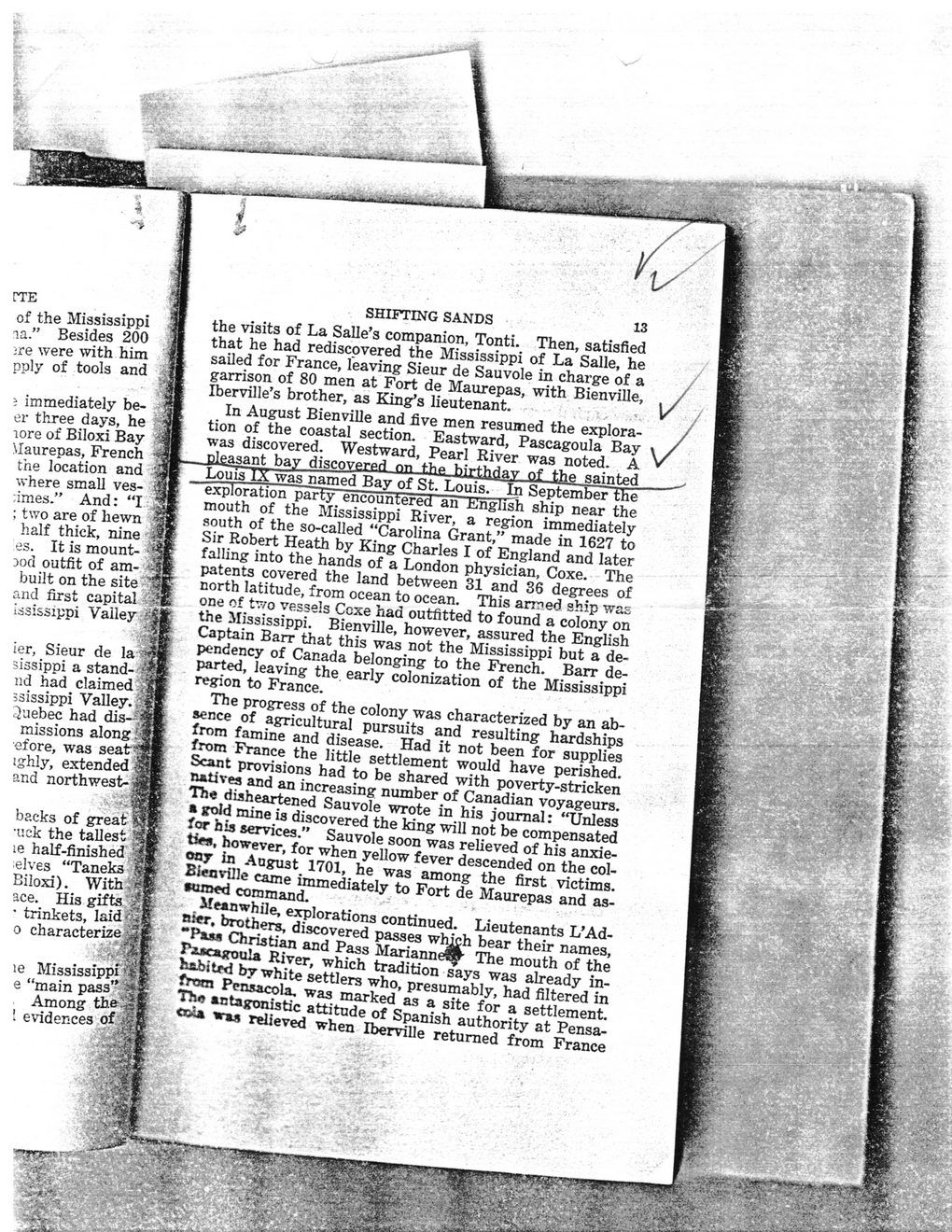This text was obtained via automated optical character recognition.
It has not been edited and may therefore contain several errors.
ETE of the Mississippi la.” Besides 200 ire were with him pply of tools and ? immediately beer three days, he lore of Biloxi Bay Maurepas, French the location and where small ves-,imes.” And: “I ; two are of hewn half thick, nine es. It is mount-. sod outfit of am-built on the site - „ and first capital idsissippi Valley; " ier, Sieur de la^ sissippi a stand--|| lid had claimed % 53issippi Valley, a Quebec had dis-3 missions along ;4 efore, was seat:‘J ighly, extended |j and northwest-i backs of great •uck the tallest le half-finished elves “Tanek3 Biloxi). With '3. ace. His gifts' • trinkets, laid -i* 0 characterize ie Mississippi e “main pas3" % Among the '~a 1 evidences of: *' V SHIFTING SANDS the visits of La Salle’s companion, Tonti. Then, satisfied that he had rediscovered the Mississippi of La Salle, he sailed for France, leaving Sieur de Sauvole in charge of a garrison of 80 men at Fort de Maurepas, with Bienville, Iberville’s brother, as King's lieutenant. In August Bienville and five men resumed the exploration of the coastal section. Eastward, Pascagoula Bay was discovered. Westward, Pearl River was noted. A pleasant bav discovered on the birthday of the sainted Louis IX was named Bay of St. Louis. In September the "exploration party encountered an English ship near the mouth of the Mississippi River, a region immediately south of the so-called “Carolina Grant,” made in 1627 to Sir Robert Heath by King Charles I of England and later falling into the hands of a London physician, Coxe. The patents covered the land between 31 and 36 degrees of north latitude, from ocean to ocean. This aimed ship was one of two vessels Ccxe had outfitted to found a colony on the Mississippi. Bienville, however, assured the English Captain Barr that this was not the Mississippi but a dependency of Canada belonging to the French. Barr departed, leaving the early colonization of the Mississippi region to France. The progress of the colony was characterized by an absence of agricultural pursuits and resulting hardships from famine and disease. Had it not been for supplies from France the little settlement would have perished. Scant provisions had to be shared with poverty-stricken natives and an increasing number of Canadian voyageurs. The disheartened Sauvole wrote in his journal: “Unless * gold mine is discovered the king will not be compensated forhisservices.” Sauvole soon was relieved of his anxieties, however, for when yellow fever descended on the colony in Angu3t 1701, he was among the first victims. Ettnrille came immediately to Fort de Maurepas and as-•urrreti command. . W^jnwhile, explorations continued. Lieutenants L’Ad--dT’ discovered passes winch bear their names, Christian and Pass Marianne®- The mouth of the v r» tradition says was already ‘ na&itrd by white settlers who, presumably, had filtered in rrom Pcnsacola, was marked as a site for a settlement, antagonistic attitude of Spanish authority at Pensa-was relieved when Iberville returned from France

BSL 1930 To 1949 MS Gulf Coast WPA American Guide Series (3)